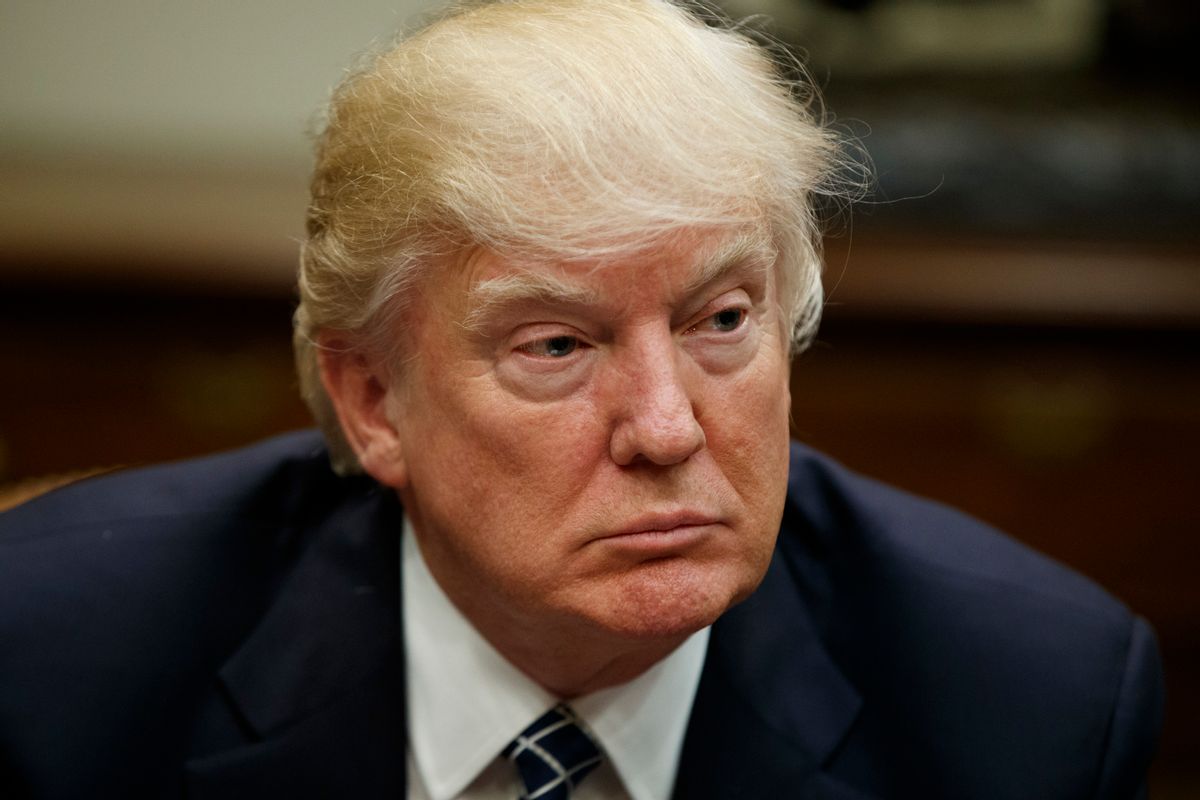During his presidential campaign, Donald Trump crafted a non-interventionist image by citing his opposition to the disastrous U.S. invasion of Iraq. Whether or not it was a true statement, it was an advantageous one that allowed Trump to distance himself from what is rightfully remembered as one of the worst foreign policy errors in recent history. His many rivals for the GOP nomination were so in the pocket of interventionist groups and defense contractors that they were never able to effectively push back.
Beyond the question of Iraq, however, despite his mouthing of platitudes about pursuing a foreign policy based upon American interests and less on a desire to impose democracy on other countries, Trump's views were really not that different from conventional Republicans. This was clear even in 2015 on the topic of the nuclear deal that then-president Barack Obama had reached with Iran and several of the world's other leading military powers to remove the economic sanctions placed on the Shiite regime in exchange for several Iranian concessions.
From the very beginning of his candidacy, Trump attacked the Iran deal (commonly referred to as the Joint Comprehensive Plan of Action or JCPOA) as "unfair" and horribly permissive, right in line with what Washington's most ardent hawks, like Republican Sen. Tom Cotton of Arkansas and Tennessee Republican Sen. Bob Corker, were saying.
In a Friday speech delivered at the White House, Trump demonstrated most convincingly that he was never really that much in disagreement with some of the very same people who created the Iraq mess as he unveiled a "new policy" on Iran while also saying that he was going to "decertify" the Iranians' compliance and then leave the issue up to Congress to sort out.
Denouncing the former administration, Trump said that Obama and his lieutenants had moved too quickly to remove the sanctions "just before what would have been the total collapse of the Iranian regime." He presented no evidence for this assertion.
Trump also accused Iran of having violated "spirit of the deal," again citing no details. The International Atomic Energy Agency, the United Nations organization charged with determining Iran's obedience to the JCPOA, has repeatedly certified Tehran's compliance. Officials with the German and French governments have said there is no evidence that Iran is not complying with its treaty obligations.
The president did mention two small incidents in which Iran was found by the IAEA to have an excessive amount of a specialized type of water used in nuclear processing facilities. Both instances were quickly resolved. In the first controversy, Iran had exceeded the allowed "heavy water" limit by 0.7 percent. In the second one, it had 0.08 percent more than was allowed.
Although Trump did not give any other meaningful details on how Iran was breaking the treaty, he accused the country of "plotting to bomb a popular restaurant right here in Washington, D.C." No such incident has been reported since the JCPOA was signed but in 2011, the Obama administration accused Iran of being involved in a plot to assassinate the Saudi ambassador. If that was the incident to which the president was referring, it is unclear why it would have any bearing on the JCPOA.
Despite continuing controversy about Trump and his staff's alleged affinities for Russia, Trump's desire to withdraw from the treaty puts him at odds with President Vladimir Putin's government, which has long been an international ally of Iran.
"Such actions will certainly damage the atmosphere of predictability, security, stability and non-proliferation in the entire world," Dmitry Peskov, a Kremlin spokesman said in a statement. "This can seriously worsen the situation around Iran nuclear deal. Such possible actions of the American side will have very, very, very negative consequences."



Shares